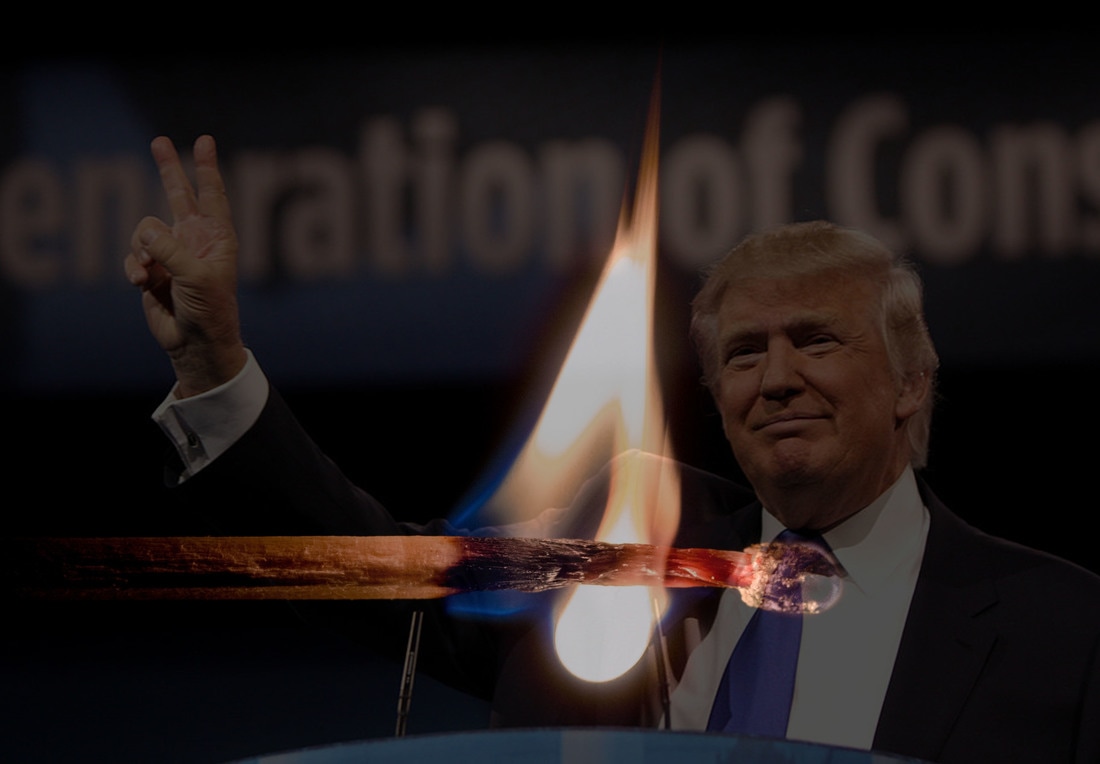|
The Breadcrumbs widget will appear here on the published site.
My Non-existence Under the Trump AdministrationEditor's Note: This piece was previously published in English Kills Review. When my mother patted the black tufts of hair on my head and gazed into my dark eyes for the first time, she was not a U.S. citizen. But, in my newborn pinkness, I was. The year was 1988 and it was an unseasonably warm day in November less than one week after Halloween. I was experiencing the world outside of my mother’s womb in healthy, even breaths that would not have been possible had it not been for my mother’s emergency C-section. With my umbilical cord wound around my neck, my birth was almost my undoing. My tiny mother was exhausted but relieved to welcome all eight pounds of me—alive!—with my American father by her side. The site of this initial meet and greet was a regional hospital on a long, winding road in my hometown of Arlington, Virginia. As part of the Washington, D.C. metro area, the pipsqueak county may be one of the smallest in the United States, but it has one of the largest Salvadoran populations in the country. This is worth mentioning because my mother is Salvadoran. She, like the majority of her fellow Salvadoran immigrants, came to the United States to escape her homeland’s civil war.
When my parents met and fell in love in El Salvador, starting a family there was not a consideration. My father’s broadcast career was based in the United States and the El Salvador my mother knew as a child was quickly disappearing. No parent dreams of raising their children among ricocheting bullets and bloodshed. But my father didn’t want just any wife; he wanted my mother, and he was willing to wait for the notoriously sluggish U.S. Citizenship and Immigration Services as they hemmed and hawed. Eventually, they gave Leticia Cristina Sanchez Gomez a stamp of approval and she bid El Salvador farewell forever. As soon as my mother’s papers were approved, my parents started their life together not far from Miami’s sparkling beaches. They were married at St. Bernard de Clairvaux Church, a 12th-century Spanish monastery that had also witnessed a great migration. Newspaper mogul William Randolph Hearst purchased the ancient structure in the 1920s and had it had disassembled stone by stone so it could be shipped from Spain to the United States. But like my mother, the monastery—which filled an astounding 11,000 wooden crates—experienced a period of limbo. After the monastery arrived in New York, Hearst couldn’t afford to have it reconstructed. Thus the stones sat in a Brooklyn warehouse for more than a quarter of a century. It wasn’t until Hearst passed that hope was the monastery was reignited. Two entrepreneurs bought the grand edifice from the Hearst estate and gave it a second life in Florida. They paid the modern equivalent of twenty million dollars for the privilege of putting together what a 1953 issue of Time Magazine dubbed “the biggest jigsaw puzzle in history.” Unlike the monastery, my parents did not reach the end of their journey in Miami. Two years after their wedding, they moved to Washington when my father accepted a job there. That was how my mother found herself moving from the capital of El Salvador to “the capital of Latin America” (as Miami has been nicknamed) to the capital of the United States. El Salvador’s civil war certainly played a role, but my mother ultimately moved out of love and stayed out of love. But, today, my parents’ story would be even less likely than it was thirty years ago. U.S. borders have gotten tighter and tighter and Central Americans fight for green cards. Even children in some of El Salvador’s most violent regions have trouble seeking refuge in the United States. I’ll never forget covering a Catholic Charities meeting for parents who wanted more information about the USCIS Central American Minor Program. Under this competitive program, Central American parents who live in the U.S. but who have children living in Central America can petition to have their children join them. One of the women fled the room crying when she learned that her child had aged out of the requirements. Even though the Catholic Charities chapter had been assisting parents with paperwork for months, the coordinator told me not a single child had been approved to come to the United States. President-elect Donald Trump says he wants to deport all 11 million estimated undocumented people now living in the United States. He says he wants to strengthen U.S. borders and build a wall between here and Mexico. He has accused Latinos of being criminals, of stealing Americans’ jobs, of tearing their own families apart through immigration. Any time Trump rages against Latinos and immigrants, I think of my parents and how they would not be together if he had been president during their courtship. My parents never would’ve married in that Spanish monastery. My mother never would’ve wailed in that Arlington hospital. My father never would’ve worried that his daughter would die before he met her. And me? I never would’ve been born. Comments
Mark
1/8/2017 04:11:30 pm
fascinating! Comments are closed.
|
|








